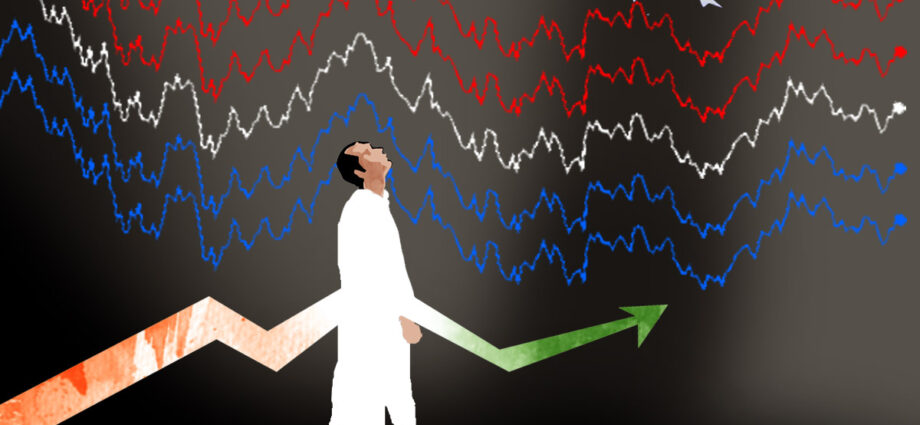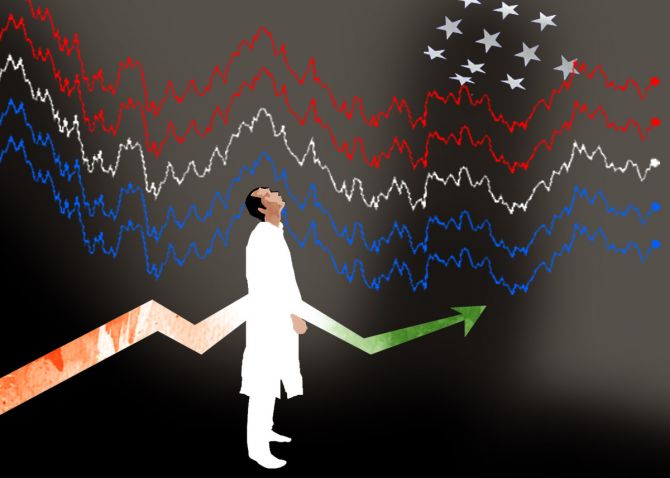Global financial markets are not yet fully factoring in any escalation in the Israel-Palestine geopolitical conflict, said Christopher Wood, global head of equity strategy at Jefferies in his latest weekly note to investors, GREED & fear.
The pertinent point about ongoing events in West Asia from a financial market perspective, according to him, is that, despite much talk about a pending ground invasion of Gaza, no such invasion has yet happened.
“This is beginning to make GREED & fear wonder if it is ever going to happen.
“The other pertinent point is the continuing comparative silence from Saudi Arabia, which makes GREED & fear assume that Saudi leader Crown Prince Mohammed bin Salman (MBS) does not want his ambitious strategy for developing the Saudi economy hijacked by the Palestine issue,” Wood said.
For such reasons, Wood assumes that there is massive behind-the-scenes pressure being applied on the Israeli government, be that pressure coming from Washington, Riyadh or elsewhere, not to go into Gaza.
“The argument being made is, presumably, that such a ground invasion is exactly what Hamas wants in order to trigger the world’s attention on the Palestinian cause.
“Still if the above is GREED & fear’s base case, it also seems to be that of financial markets’ given the lack of a more negative response to what has been going on.
“This is another way of saying that, if GREED & fear is wrong and the situation escalates into a broader regional conflict, it is certainly not priced into markets,” Wood vIsrael, meanwhile, has asked its ground troops to get organised and ready to enter Gaza at any time, reports suggest.
The US State Department, too, issued a worldwide caution alert in the backdrop of the escalating tensions in West Asia.
Citing the “potential for terrorist attacks, demonstrations or violent actions against US citizens and interests,” the State Department warned Americans abroad to exercise increased caution.
Oil on the boil
An immediate fallout of these developments has been on crude oil prices, which are now nearing $94 a barrel (Brent crude), rising nearly 12 per cent from $84 a barrel a fortnight ago.
Coupled with rising bond yields, especially the US 10-year that hit a 16-year high of 5 per cent (up from 3.8 per cent in June 2023), amid hawkish central bank policies have kept the market sentiment – both in India and across major global equity markets – in check.
In September, the MSCI world, EM and Asia ex Japan indices were down meaningfully by 4.1, 3.7 and 3.2 per cent respectively, data suggests.
Positive real bond yields in the US are keeping emerging market (EM) flows in check and India was no exception.
Against this backdrop, analysts suggest investors adopt a wait-and-watch approach for now, at least till there is more clarity on the developments in West Asia.
As a broader investment strategy, Jitendra Gohil, chief investment strategist at Kotak Alternate Asset Managers, for instance, suggests investors will be better off sticking to large-caps as compared to their mid-and small-cap peers and should adopt a ‘buy on dips’ strategy.
“Our investment committee maintains a neutral stance on equities and believes the risk reward for large caps is relatively more favorable at this point in time.
“The equity market should remain well supported in coming weeks, as we believe India’s solid macro fundamentals along with resilient corporate profitability should aid buying interest on dips,” he said.
Source: Read Full Article
-
American Airlines To Unveil Premium Suites With Privacy Doors
-
Clearly, RBI is not worried about growth
-
Comcast Launches Now TV, A $20-A-Month Streaming Service With 40-Plus Entertainment Channels, FAST Offerings And Peacock Premium
-
European Shares May See Cautious Start As Investors Await Fed Decision
-
Unseasonal rains to impact performance of consumer durables in Q1


